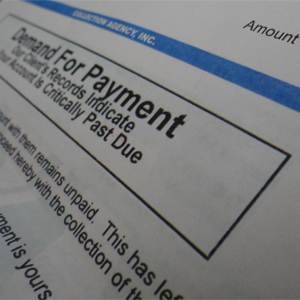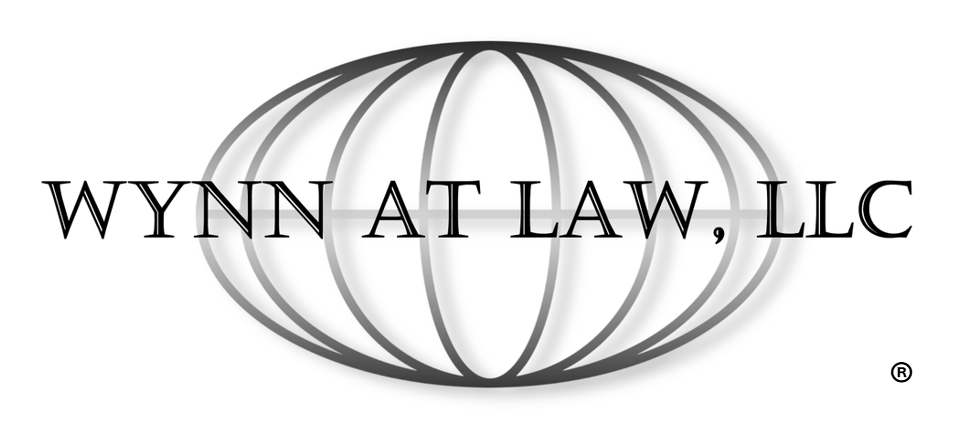It’s happening across the country. It could happen to you. Innocent Walworth County residents are receiving phone calls from someone trying to collect on a debt or loan, but the loan doesn’t exist or the amount owed is incorrect. Sometimes the voice on the other end threatens to send you to jail for failure to pay. This frightening scenario is being experienced by Walworth County consumers more and more. It’s called fraudulent collections or fake collections, and sometimes referred to as “phantom debt collection”.
Fraudulent collections are making headlines once again. The Consumer Financial Protection Bureau has filed a lawsuit against more than a dozen debt collectors, payment processors, and related entities for failure to stop fraudulent collection tactics. The complaint accuses many debt collectors located in Georgia and New York of harassing consumers about “phantom” debts. Consumers were harassed, threatened, and deceived in order to collect on debt that was not even owed.

How Can A Walworth County Resident Recognize a Fake Debt Collector?
In today’s day and age, we are all always on alert for scam artists, online and offline. As consumers victimized in the aforementioned lawsuit paid millions of dollars on debts that were fake, the fraudulent debt collectors do a really good job of convincing people. How else could they fool so many people?
It can be very difficult for Walworth County residents to tell the difference between a legitimate debt collector and a fake debt collector. Fake debt collectors sometimes have your personal information, such as a bank account number, loan number, phone number, or address. They may lead you to believe that someone else has taken a loan out in your name. The fake debt collector may convince you that you owe more money due to fees and interest. Below are some tips to help Walworth County residents recognize a fraudulent debt collector:
1. The debt collector is seeking payment on a debt or loan that you do not recognize.
2. The debt collector refuses to provide you with a mailing address or phone number.
3. The debt collector asks you for personal or financial information. Remember, never provide anyone with your personal financial information unless you know they are a legitimate agency.
4. The debt collector tries to scare you into paying by threatening to have you arrested or reported to police. They may claim their employees are law enforcement officers.
5. The debt collector refuses to provide you with information about your debt. You can ask for detailed information about the debt in writing before you pay.
6. The debt collector does not accept various forms of payment.
What Should Walworth County Residents Do If They Recognize a Fraudulent Debt Collector?
If you believe that you are speaking with a fraudulent debt collector, do not provide them with any personal information. Below are a few strategies in regards to dealing with fraudulent debt collectors.
1. Do not engage in any type of conversation with someone trying to collect on a debt that does not exist. Just hang up. Beginning a conversation about how you do not owe the debt only works in the scam artist’s favor.
2. As stated earlier in this post, ask for debt verification. If you feel the debt owed may be legitimate, insist the debt collector place the debt information in writing before you pay. You have the right to ask for written verification under the Fair Debt Collection Practices Act. A legitimate debt collector knows they must comply and will do so without argument.
3. Contact your creditor. It is imperative you let your creditor know a fraudulent debt collection attempt has happened so it can be investigated and the creditor can warn other debtors.
4. Be practical. Many times the fraudulent debt collector will tell you they are taking you to court if you fail to pay today. Firstly, you must be served with a notice of the lawsuit or summons to appear. If you haven’t received one, you are not going to court. Ask the debt collector for the case number and name of the court where the lawsuit is filed. Ask for a return phone number so you can call and verify the lawsuit with the courthouse, then call them back. If you are dealing with a fraudulent debt collector, they will not provide you with a return phone number or a court case number. If they make one up, you will know when you call the courthouse or try to call them back.
If the debt collector claims to be with a law enforcement agency, ask for their badge number, name of agency, and location of agency. (Tip: Your first red flag is knowing law enforcement officials are not debt collectors.) Tell the debt collector you will be calling the law enforcement agency to verify their identity before you speak with them and, if their story doesn’t check out, you will be calling the police on them.
5. Takes notes. Takes notes regarding the phone call so you can file a complaint later, if the debt collector turns out to be fraudulent. Note the phone number that called you. Send your complaint to the Federal Trade Commission, Wisconsin Attorney General, Better Business Bureau, Consumer Financial Protection Bureau, and Federal Communications Commission.
6. If the debt collector calls a second time, and you have already proven that they are a fraudulent debt collector, tell the fraudulent debt collector you are recording the conversation or have taken notes on the phone call. Let them know you have already submitted a report to the federal agencies.
How Can Walworth County Residents Protect Themselves From Phantom Debt Collectors?
1. Never provide your personal information to anyone in person, on the phone, or online unless you made the initial contact and you know they are a legitimate agency. Doing so can lead to your identity being stolen.
2. Shred or burn everything. Never place papers with sensitive information in the garbage. This includes credit card statements, receipts, bank statements, medical bills, etc.
3. Look around before you enter your PIN at ATMs, department stores, grocery stores, and gas stations.
4. Never provide personal or financial information to anyone in response to an email.
5. Carefully monitor your credit card statements and bank statements.
6. Check your credit report annually.
7. Only provide your social security number when absolutely necessary.
8. Call creditors to verify amounts owed and to learn why a statement hasn’t arrived on time.
9. Immediately report lost or stolen credit cards or checks.
10. Only shop on websites that offer a secure payment page and clearly state their privacy policy.
Tips for Legitimate Walworth County Debt Collection
Debt collection scams don’t just hurt Walworth County consumers, they hurt the legitimate debt collection industry as well. If you work in debt collection, you must always act professionally. Here are a few tips for Walworth County debt collectors:
1. Never call a debtor at their place of employment if you know it is not allowed by the employer or the consumer.
2. Never call a debtor before 8:00 a.m. or after 9:00 p.m. or at inconvenient timeframes.
3. Always remain calm, courteous, and professional. With so many scams out there, it is almost as if a burden of proof falls on the debt collector to prove their identify as well as debt verification.
4. Know consumer rights and respond to written and legal requests in a timely and professional manner. Debt collectors must remember it is the right of the consumer to ask for written debt verification.
5. Do not threaten to take any course of action unless you intend to actually seek that particular course of action.
Contact Our Walworth County Debt Collection Lawyer
If you require legal representation to defend or collect a debt, contact our Walworth County debt collection lawyer. We represent Walworth County residents and Walworth County businesses in debt collection, debt defense, and debt repair. Wynn at Law, LLC has offices located in Salem, Lake Geneva, and Delavan, Wisconsin. You can reach our Walworth County debt collection lawyer at 262-725-0175 or via our website’s contact page.

*The content and material on this web page is for informational purposes only and does not constitute legal advice.

